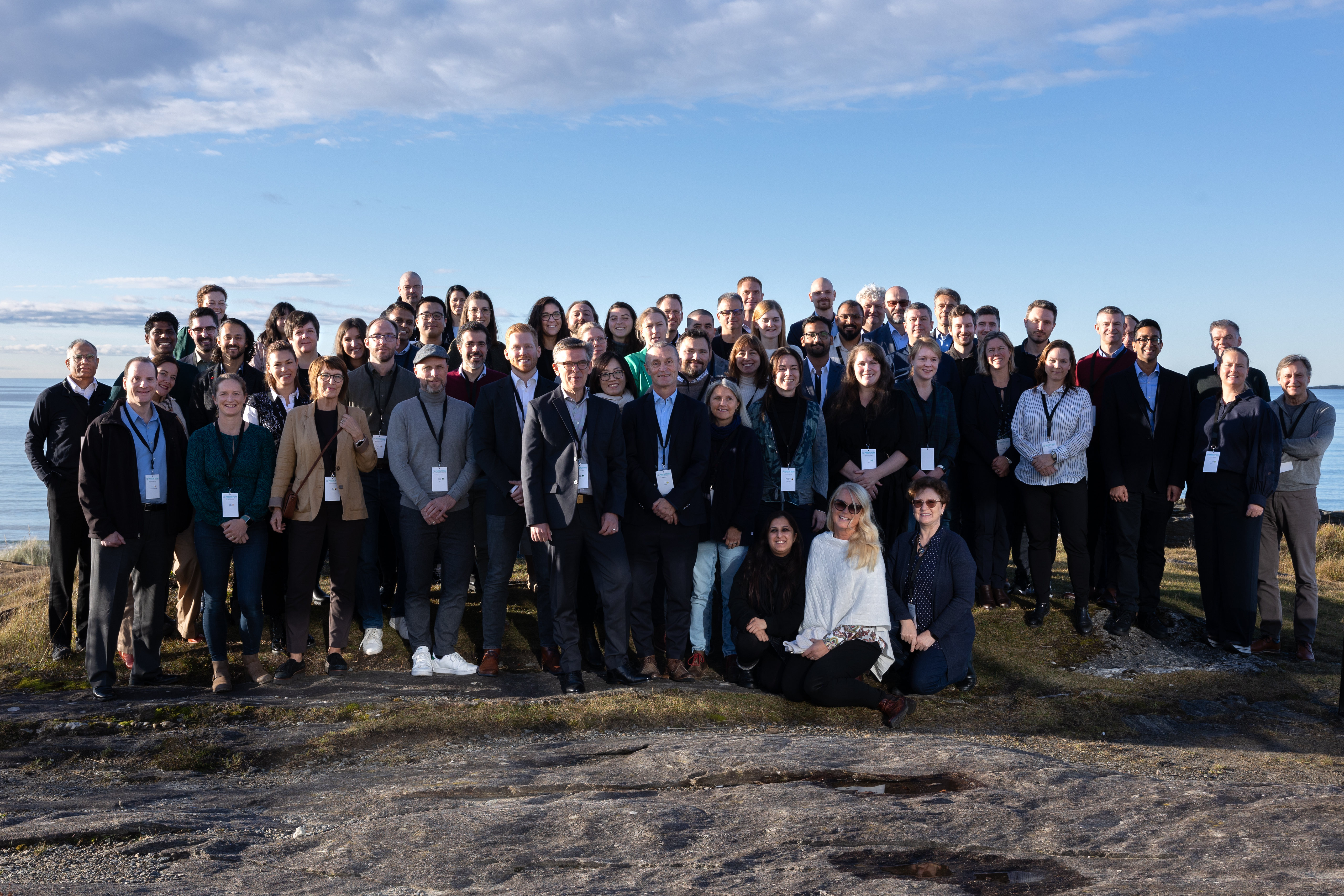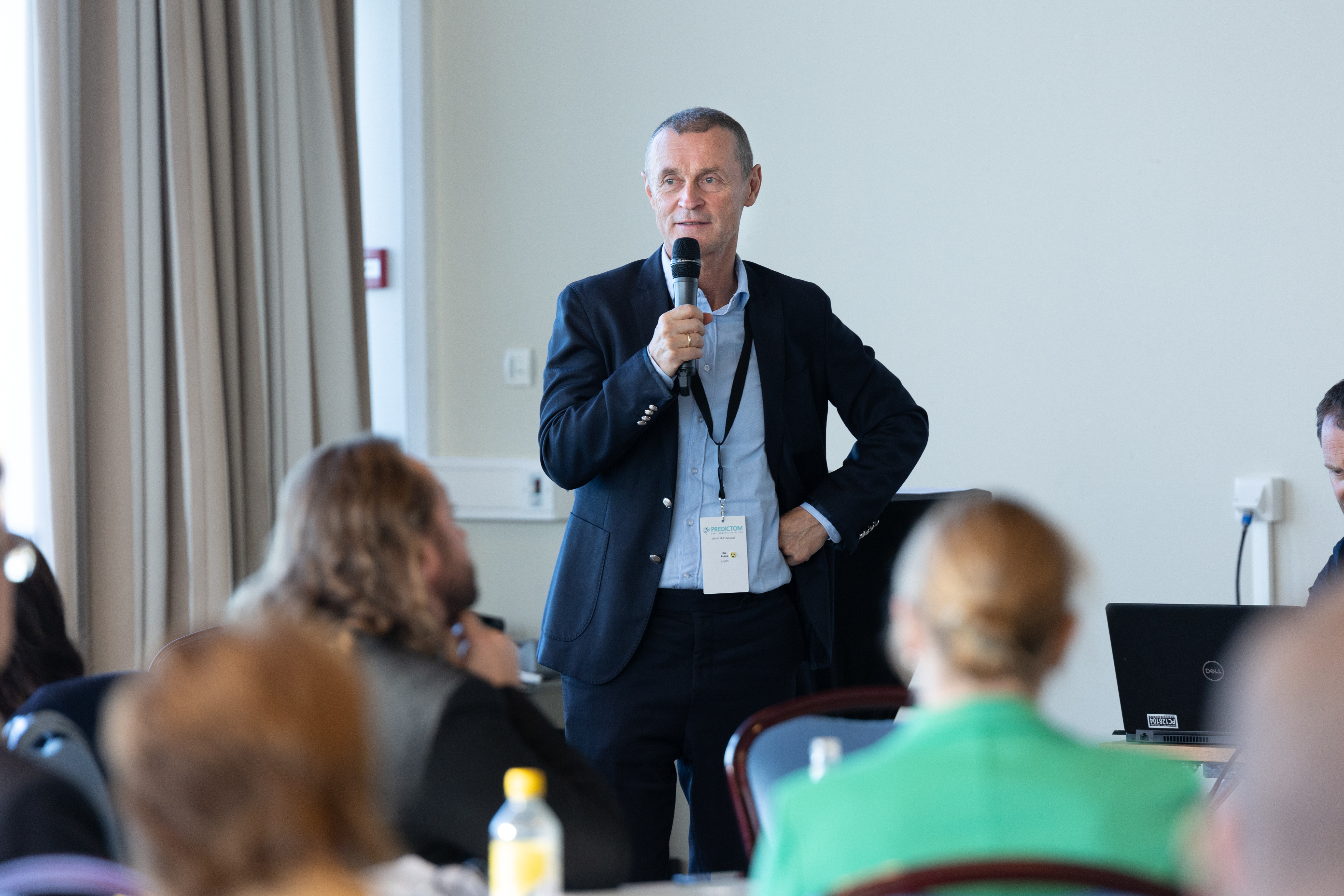Alzheimer’s disease accounts for between 60% and 80% of all dementia cases. The condition affects memory, thinking, and behavior, and symptoms typically start with mild cognitive impairment and eventually grow severe enough to interfere with daily tasks. Many patients don’t get a definitive diagnosis until the disease has reached the point where they’re already dealing with severe symptoms.
That’s what GE HealthCare aims to do as the leading industrial partner in PREDICTOM,* a consortium project to develop a digital platform that will collect and aggregate biomarker data and then use AI algorithms to generate risk assessments and early diagnoses and prognoses of Alzheimer’s at its earliest stages. The four-year project is part of the Innovative Health Initiative (IHI), a public-private partnership between the European Union and the European life science industries. It represents a €21 million investment (nearly $23 million) to operate and combine the expertise of more than 25 institutions throughout Europe.
Identifying early biomarkers as Alzheimer's predictors
Currently, detection and diagnosis are typically performed once the person’s dementia is already advanced, but it is believed that changes in the brain may begin a decade or more before the first clinical symptoms emerge. PREDICTOM will aggregate participant data in different screening stages, including imaging, blood, electrophysiological, and digital biomarkers to identify scalable and cost-effective early biomarkers and enable earlier testing and screening in the home.
“We want to make these very advanced, predictive tools widely available beyond expert centers, and significantly more accessible,” says Timo Schirmer, director of GE HealthCare’s MR Applied Science Lab Europe.
“One of our underlying motivations is that the specialized healthcare system is already overloaded,” adds Dr. Dag Aarsland, professor of old age psychiatry at King’s College London, research lead at Stavanger University Hospital in Norway, and coordinator of the PREDICTOM project. “We’re on the cusp of a huge milestone that can reduce the speed of the disease progressing.”
Dr. Dag Aarsland, professor of old age psychiatry at King’s College London, research lead at Stavanger University Hospital in Norway, and coordinator of the PREDICTOM project.
Both Aarsland and the GE HealthCare team had been thinking independently about using data science and AI to identify and analyze biomarkers for signs of Alzheimer’s, and once Aarsland and Schirmer met, they knew they wanted to work together. PREDICTOM formally launched November 1, 2023, and is scheduled to run until October 31, 2027. GE HealthCare’s magnetic resonance (MR) research team, based in Munich, Germany, will work with the clinical partners to develop and identify MR imaging biomarkers. Meanwhile, GE HealthCare’s digital teams in Budapest, Hungary, will develop the digital platform that will aggregate patient data and AI algorithms that will analyze the enormous volume of biomarker data.
AI is enabling researchers to find the most reliable Alzheimer's biomarkers
The first step in the process is collecting and encrypting the data from the project’s 4,000 participants and determining which combination of biomarkers will provide the most reliable prediction of Alzheimer’s. AI, says Aarsland, will be a key element in making sense of the data and working out the best combinations of the collected biomarkers. The goal is to find the most reliable combination of biomarkers to predict the disease as early as possible.
The timing of the project is especially fortuitous. Alzheimer’s research has been expanding in recent years, and new medications that slow the development of the disease have been approved in the U.S., China, and Japan. The sooner patients can receive a diagnosis of the disease, the sooner their doctors can begin treating it.
“It’s an ambitious project,” says Schirmer, but he believes it has the potential to succeed. “This vital undertaking offers hope to those who might face an Alzheimer's disease diagnosis and underscores our commitment to enhancing early detection and improving patient outcomes.”
Discover more Alzheimer's stories
*This project has received funding from the Innovative Health Initiative Joint Undertaking, under Grant Agreement 101132356. This Joint Undertaking receives support from the European Union’s Horizon Europe research and innovation program, COCIR, EFPIA, EuropeaBio, MedTechEurope, and Vaccines Europe.
The content of this publication represents the view of the author only and is their sole responsibility; it cannot be considered to reflect the views of the European Commission. The European Commission does not accept responsibility for the use that may be made of the information it contains.


